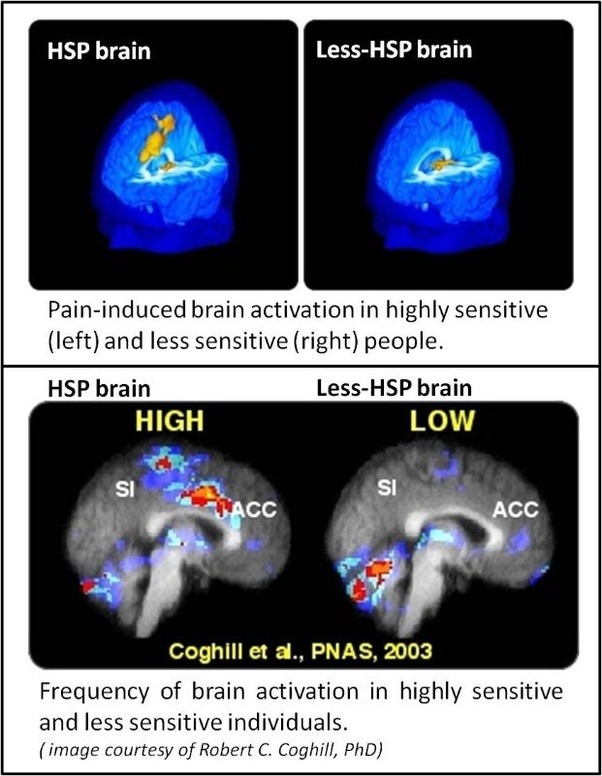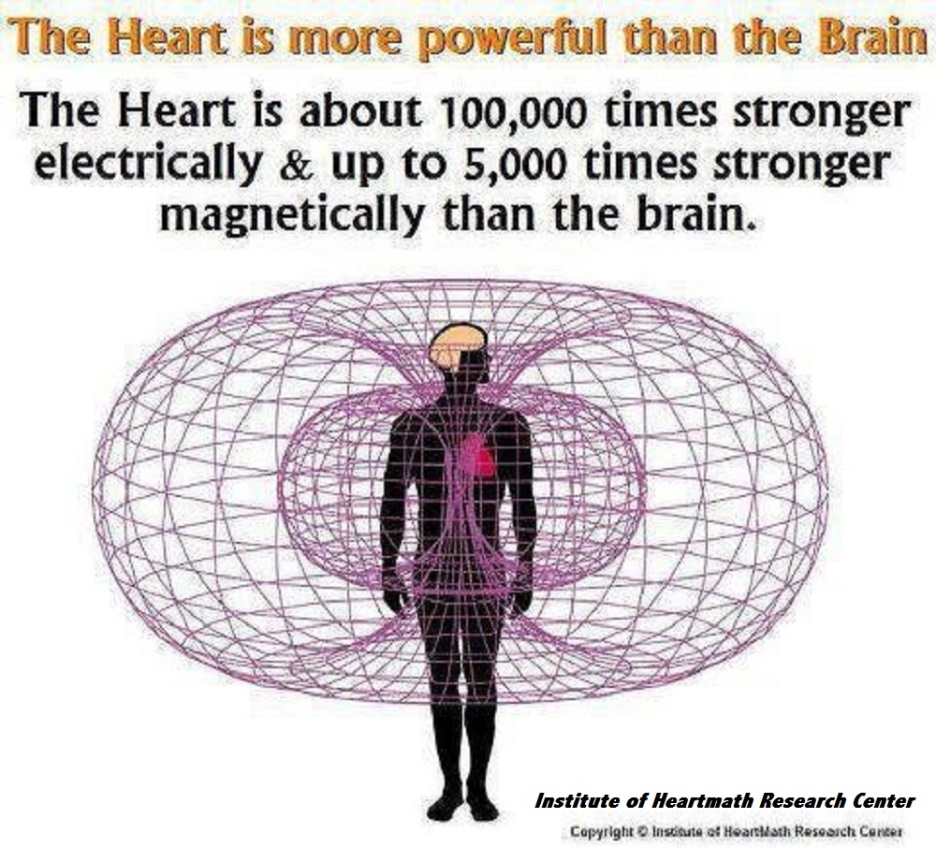

Essentials for HyperSensitive Persons (HPS). How to know if you are one & how to thrive
Introduction
After my psychology studies, I found out rather by chance that I was a HSP as per Dr Aaron research and I’m wondering how come I didn’t know about it during my psychology studies? In 10 years of psychology studies no one mentioned Dr Aaron’s study and her astonishing results on the so called ‘hyper-sensitive’ persons. Incredible.
What does it mean to by a hypersensitive person?
In our society this is often linked to being weak, to be too sensitive seems to be a problem, never a quality. The prejudice around this term has made many children and younger adults feel ashamed or inadequate for feeling too much. Buried feelings and masking real emotions & thoughts are often a daily combat for a HSP. By fear of societal rejection or prejudice, we hold back, we keep it all in and we may hide away from the world, happily in some sort of cave because out there is not safe and we may feel too much, too quickly and get overwhelmed to a point of struggling to get back to balance again.
I thought something was “wrong” with me for a very long time. I cry for nothing. I also laugh for nothing. I read others people’s mood / energy in a split second and I when I enter the room my whole body feels the heaviness or the lightness (rather rarely) of a place.
Yes, empaths are hypersensitive in a first place. It is very common that HPS are also Gifted Children (IQ superior to 130) and often wrongly diagnosed with HD/AD (Hyperactivity Disorder or Attention Deficit Disorder).
70 % seem to be introverts and 30% extraverts. The latter love to be around people and large circle of friends but still need a lot of time for themselves to recharge, process, digest and quiet the mind (constantly stimulated) .
There are as many boys as girls with this trait but males will be harder to identify because of societal conditioning and cultural expectations ‘to be a man’ for example.
Traits of Hypersensitve Persons (HSP)
In a summary lets overview some traits of HSP
Main traits include:
- More easily overwhelmed by sensory stimuli such as bright lights, strong smells, coarse fabrics, or loud noises
- More easily irritated when you have a lot to do in a short amount of time
- Avoidant of violent movies, conflicts and TV shows
- Need to withdraw during busy days to places where you can have privacy and relief from the chaos
- Make it a high priority to arrange your life to avoid upsetting / overwhelming situations
- Sensitivity to fine scents, tastes, sounds, or works of art
- Have a rich and complex inner life
- Empaths
- Depth of information-processing.
- Highly observant of details
- Very good memory
- If you identify with most points, also note:
- HPS traits are normal: they are found in over 20% of the population–too many to be a disorder, but not enough to be well understood by the majority of those around you.
- HSP have unique genes, so it is innate. Biologists have found it in over 100 species (and probably there are many more) from fruit flies, birds, and fish to dogs, horses, and primates. This trait reflects a certain type of survival strategy, being observant before acting. The brains of (HSPs) actually work a little differently than others’. To learn more about this, see Research.
- Sense of awareness is more acute. This is mainly because your brain processes information and reflects on it more deeply. So even if you wear glasses, for example, you see more than others by noticing more.
- You are also more easily overwhelmed. If you notice everything, you are naturally going to be overstimulated when things are too intense, complex, chaotic, or new for a long time so you may need immediate quiet time. (*excluding PTSD & previous trauma causes)
- This trait is not a new discovery, but it has been misunderstood. Because HSPs prefer to look before entering new situations, they are often called “shy.” But shyness is learned, not innate. In fact, 30% of HSPs are extroverts, although the trait is often mislabeled as introversion. It has also been called inhibitedness, fearfulness, or neuroticism. Some HSPs behave in these ways, but it is not innate to do so and not the basic trait.
- Sensitivity is valued differently in different cultures. In cultures where it is not valued, HSPs tend to have low self-esteem as they are told to be “too sensitive” which leads them to feel abnormal.
Clear Neurological Differences
HPS represent indeed between 15 to 20% of the population with a clear difference in the brain functioning. So there is a genetic factor that differentiates them from the larger population and they are born with this trait very visible on IRM scans when processing information ( HPS brains fire up widely when exposed to a stimuli whereas non-HPS have only a few specific parts activated when processing the stimuli) . See below an image of this activation.

Why is it important to know if you are a Hypersensitive Person?
For me it has been very relieving to know I was one. Here is why:
-it helps you understand your needs personally and professionally speaking
-It helps you understand your general functioning, so you can welcome these extra-stimulations and learn to manage them more effectively.
-it helps you join associations & like-minded fellows for support, co-creation, socialization and a sense of belonging.
The Criteria for Hypersensitive Persons
Before going any further lets clarify the 4 D.O.E.S criteria for being a HSP as per Aaron’s study. To know if an adult person is Hypersensitive you may look for these indications:
D
D for Depth of processing.
Does this person often come up with unusual, creative ideas? Is this person unusually conscientious (aware of consequences of failing to do things well)? Does this person prefer to decide things slowly, mull things over? Do they seem to think in detail about things and connect different ideas quickly? Are his or her decisions often right? (well anticipated)
You might also ask if this person has thought about the long term goals of their part of the organization, or why something did or didn’t work. If the person feels safe to comment honestly, and many HSPs will be cautious about this, you will probably hear a surprisingly long, detailed but logical answer.
E
E for Easily Overstimulated. Have you noticed that this person is more easily stressed by noise, chaotic situations, deadlines, or working in groups (true more for introverted HSPs)? Seeks quiet spots? Prefers to work alone or at home? You might ask if the person would benefit from a quieter working environment or more flexible deadlines. Outside the workplace, does this person hesitate to make plans or turn down invitations? It could be because he or she just needs more downtime.
E
E for Emotionally reactive. Does this person react strongly to feedback, both positive and negative–perhaps over compensate and, for example, rewrite an entire report when only some of it needed changing? Has she or he ever cried in a meeting? Does this person have considerable empathy for others, or know more than most about other workers’ personal problems? Does this person, compared to others, worry more about how someone is reacting to a negative event, give more positive feedback, and generally attend to group morale? Does he or she become angry, curious, sad, anxious, or joyful sooner than others? You might also ask directly how they feel about something.
S
S for Sensitive to subtle stimuli. Does this person seem to notice things that others don’t? Does he or she arrange work spaces with special care, such as adjusting the lighting? Comment on others’ dress or small changes in the environment or weather? You might say you are looking for people who notice details, and for fun ask the person something like the color of the chairs in the meeting room.
Other Subtle Stuff
You will still wish to validate your hunch, so perhaps a few direct questions could be asked without raising alarm. Try “I feel xx–do you too?” “I hate noisy places. How about you?” “I can’t stand it when people don’t think ahead. (Are rude. Are late.) Does that bother you?” You would think everyone would say yes, but non-HSPs won’t say “yes, me too,” to more than one or two. After a string of agreements on these sorts of things, the two of you will begin to see your underlying similarity.
If you are a parent of HSP
For parents of HP I recommend visiting the website of Dr Aaron – the hypersensitive person as this is discussed there and there are a few resources for parents.
But I would outline the following important points above all, so!
What to do?
Children HPS
Welcome childrens’ emotions – including the negative ones – as they are. Be there, listen, make space for them. HPC feel the pain more deeply (emotional (empathically or personally) AND physical) so let them overcome it in their own timing.
Do not push them to be doing something all the time. Its OK to do nothing and they highly need it.
Do not worry if they act like ‘loners’. They prefer usually fewer friends and fewer social opportunities. They get overwhelmed by too many people.
Be careful with screaming and loud voices, noises and emotions. They can be traumatized by them and become fearful / anxious / depressed later. Not to mention using other forms of violence like physical abuse or emotional abuse that are severely detrimental to their development.
Teach them Boundaries. Its Ok to think for yourself and speak up! They do not have to be nice or too polite. Its ok to be honest and they highly need it. Authenticity is part of their highest values, praise it. And its OK to be self-caring and think about themselves first. They tend to have too much empathy for others and as a result sacrifice their own needs.
Help them embrace their hobbies. As odd as they may be. It will create their resourcing bubble.
Encourage creative activities. They excel in these and can be really outstanding if you believe in them unconditionally.
Accept their unconventional ways to study or to behave in class. Structured settings make them suffer a great deal and schools are designed in this manner. Support them in their needs, criticism, restlessness and sometimes acting out. Unconditional support will make them much further than school will ever do.
Adults HPS
If you are like me a HSP you may look for ways to be less sensitive and overwhelmed, especially if you have not learned it in your childhood or had knowledgeable adults around you to support you with this unique and beautiful trait.
I say it’s a beautiful trait and not a ‘curse’ because this sensitivity allows us to see things others do not see, to read others quickly, to process deeply, to be creative, imaginative and innovative, to be happy for the small things and find joy as quickly as we find pain. Its quite of a ride! It’s an intense life and a fast ride! But I personally better be alive in that manner than somewhere in the (dull) middle. I take it as a blessing because this way of feeling intensely makes also very grateful for the gifts of life. For this amazing beauty we find on Mother Earth.
It is a gift for Humanity to be empathic and sensitive in a world that gets more and more cold and disconnected. Ruled by machines, robots, competition, fear and low vibrations. If we work on maintaining the frequency high (aka looking after OURSELVES FIRST) we make a huge difference for this planet. Huge. Like a domino effect we impact every life we touch.
HPS are the Hope for Humanity. Literally the FUTURE of Humanity.
And globally we start to see it and appreciate it more and more. Skilled employers see the potential in these out of ordinary beings as they learn about HP-S more as well. If they do not know, please educate them.
It is really your responsibility to state your needs at interviews, to people in your life, to your colleagues etc, and to let them know how you function. Self-assertion comes often once we burned out but you don’t need to reach the rock bottom to start practice it already, it will save you a lot of time and unnecessary pain. Trust me, I learned it the hard way.
Things that work best for Hypersenstive Persons
Meditation.
Meditation is not a relaxation practice. It’s an awakening practice. It’s a tool to be grounded aka Present.
Learn to channel your energy. A meditator is someone who masters their vital energy. Their prana.
Their mental energy. Learn to stay still and feel into your breath, your body, your root chakra, your heart or simply in the beautiful space of your own presence. Feel the Here. Feel the Now. Feel with all your senses what is here and now.
Listen to the silence. Smell the air, the rain, the foods. Feel the ground under your (bear) feet. Bring your awareness home (inside your temple) or to your garden (outside your temple). But just be Here & Now with great alertness.
Let your body speak and LISTEN.
Welcome ANY emotional with full acceptance and non-resistance. Is there, its ok, breath into it and ask yourself: what is this emotion teaching me right now?
Learning to Meditate is learning Emotional intelligence.
Emotional Intelligence fosters the following qualities:
Social skills, self-awareness, self-regulation and motivation.
Regular Connection to Nature & Animals
These must be the most grounding things a HPS can enjoy. The love for animals is often obvious too. If you can’t have pets, or regular nature/park walks bring plants into your home/room. Learn to care for them, to tune into them. Visit animal shelters, volunteer there, sponsor a shelter dog in a country. I have automatic monthly donations to Humane Society and another Shelter Association in Romania. It gives me joy when I see what they could do with my support. Go visit them regularly.
Alone time
HPS need loads of it…to process & integrate new information and experiences, otherwise they get quickly overwhelmed. I work part-time and I can go 3 days in a row no speaking to anyone and being in my own company. I wasn’t always able to do that and you cant always do it, very true. But I would spend lots of time in Nature, or at the beach in my own bubble.
Parents are constantly solicited and get quickly drained, but a big part of their path is to learn imperfection, show vulnerability to children and talk about inner feelings and mental exhaustion. Children do not need perfect parents. They need real parents. The real world is imperfect and complex. When we teach reality with our own feelings, we teach true presence and conscious education. This is called good enough parenting in developmental psychology and is essential for a child to thrive as an adult. Be a role model of authenticity. With your children and with every single relationship in your life. You will definitely have more fulfilling relationships and it will be easier peopling (even for extraverts -HSP).

Say NO often
No to social gatherings, no to shallow events, no to invitations that feel like obligations, it’s OK to say NO. YOU first, remember??! Then you can be more caring if you feel recharged and gained your space but first YOU.

Mantras / Affirmations
Mental affirmations restructure the brain-wiring and helps you face the daily challenges in a few seconds, they are that magical. As soon as you give yourself the empowering talk- BANG! You can move mountains It creates momentum. It calms you. It gives you any mental space you need in an instant. And in the long term, if you stick with them for a while, it re-wires your brain for good.
See, the brain does know the difference between real and imagined. It activates the same neurological paths if you truly believe it and if you do not but just say it.
Words create thoughts. Thoughts create emotions and energy. Emotions are infinitely more powerful electrically than the mental energy. And Emotions create ACTIONS.
What you think, you become. Watch your inner self talk wisely…

Make a point to speak your favourite affirmations out aloud or in your mind as often as possible. I love Louise Hay Collection of Affirmations, use these to start with.
Conclusion
Being a Hypersensitive Person is a wonderful personality trait to have in our times. With time it gets better and better as we start to know ourselves and set Firm Boundaries and Priorities. We learn to assert our needs and educate others about how we function. Some will accommodate these needs, some will not. Decide if you want to be surrounded by such people. Remember you sole responsibility is to educate. To speak up. The rest you cannot control. Once you surrender expectation of self and others, you embrace your beautiful traits and sensitivity as a true Gift to the World and you start to shine your Light.
Embrace your HSP and you’ll create ripples of inspiration & motivation for other HSP (that you may not know they are too) who struggle to see the Light or stay on the surface.
We teach people best by who we are not by what we preach. Be that model!
Love always,
xx